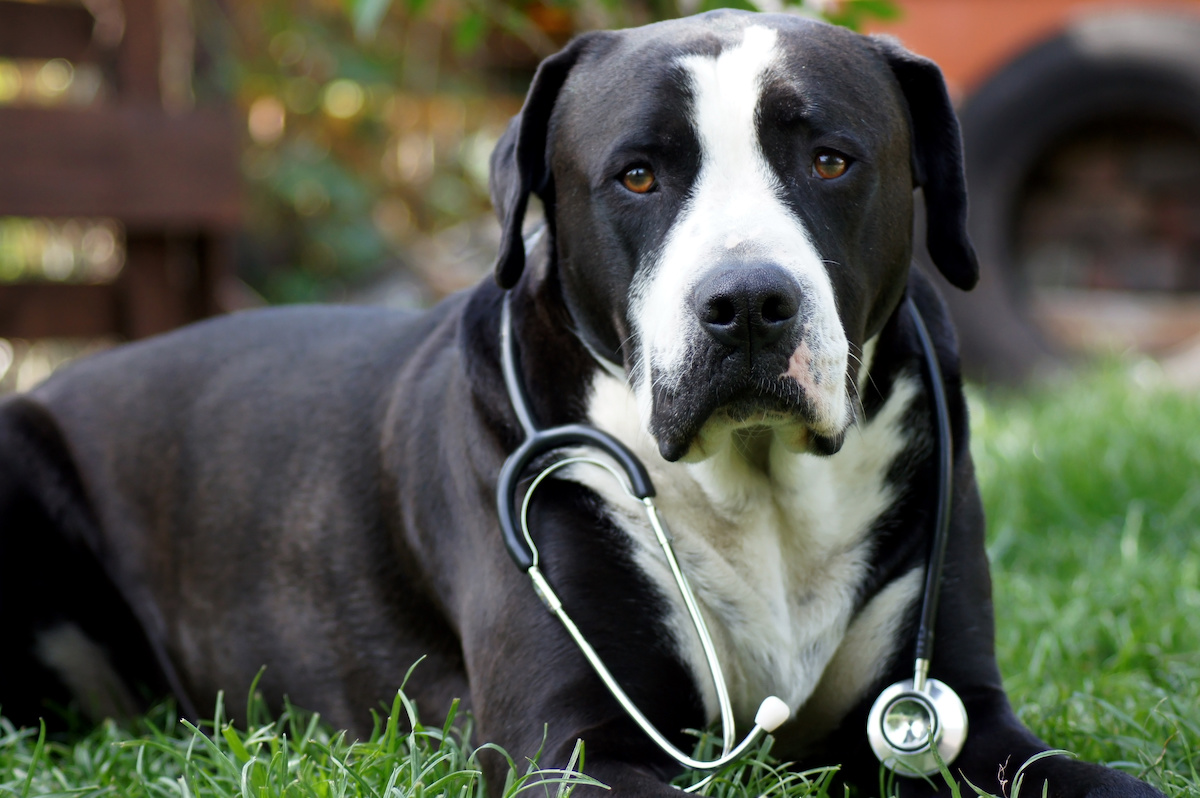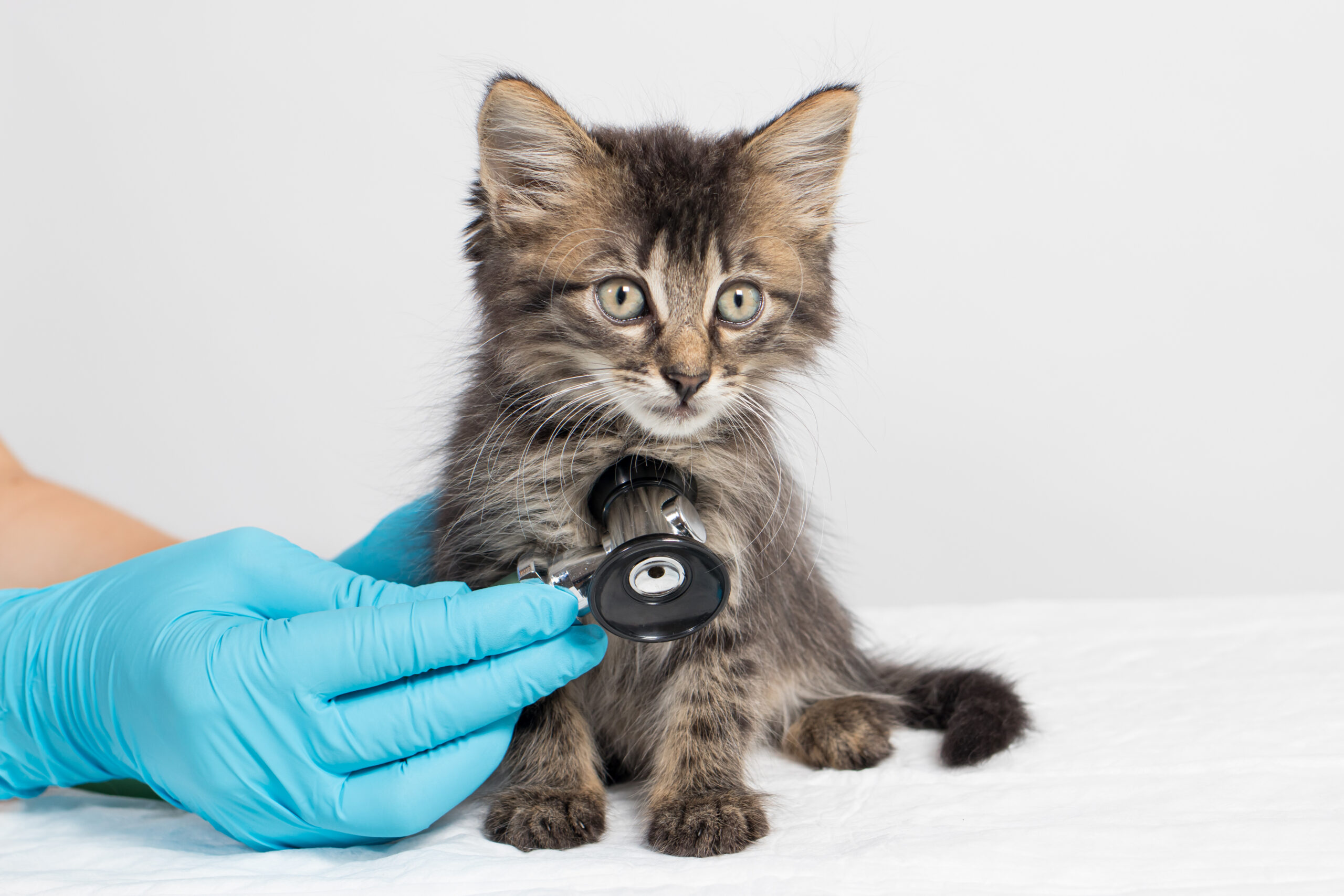Unfortunately, pet heart disease is a subject worth discussing. Besides our mothers and fathers, pets provide us with unconditional love when we need it the most. It’s important to pay attention to the signs of pet heart disease, so we can give our fur babies a healthy and happy life. But what do pet owners need to know when it comes to heart disease?
The care and attention required to maintain heart health in pets is similar to what is required to maintain heart health in people. We’ll discuss how to preserve the health of your cat’s or dog’s heart so you can continue to cherish them for years to come!
Defining Pet Heart Disease
What is heart disease, and what consequences might it have for your pet? Let’s begin with the basics.
Your pet may have heart disease, termed ‘coronary heart disease’ or ‘endocardiosis’ in humans. This is when the coronary arteries supplying blood to the heart are obstructed. In cats and dogs, heart muscle itself is damaged as a result of heart disease.
There are 2 variations of heart conditions in dogs:
- Valve disease is a common cause of a heart murmur. Murmurs are rated on a scale from 1-6. The higher the number, the more obvious the murmur. Many dogs can lead a normal life with a heart murmur. Keep in mind that a murmur is not a certain sign that your dog has heart disease.
- Heart muscle disease happens with the heart muscles begin to wear thin. Blood flow is impeded in cardiovascular disease, often referred to as “heart disease”. Blood flow may be impeded by a blockage or by constricted blood vessels, for example. When the heart muscle becomes too weak to pump blood effectively, it leads to heart failure, which is when the heart muscle becomes too weak to pump blood effectively.
What does heart disease look like when it comes to cats?
- Heart muscle disease, which is similar to dogs. This can result from a hereditary condition.
- Heart malformations, including a valve or a septal defect. In other words, a hole in the heart. This can cause a heart murmur which will lead your veterinarian to look into the situation further.
- Heart disease is less common in cats than it is in dogs.
Although learning that your pet may have heart disease is a little frightening, let’s discuss what symptoms to look out for.
What are the Symptoms of Pet Heart Disease?
Pets can exhibit a wide range of heart disease symptoms, and they can be difficult to identify. All four heart chambers must be affected for any of the following symptoms to occur.
- Signs of cardiovascular disease can occur in any breed at any age and in either sex. Keep in mind that dogs and cats can be born with a heart defect.
- Dogs and cats with heart disease may become weak, lethargic, and downcast or show signs of discomfort.
- It’s possible that your pet may exhibit no signs at all, making the condition tricky to diagnose.
Because pet owners are often not cognizant of minor symptoms, heart disease is tougher to detect in animals than in people. Veterinarians, in contrast to cardiologists, do not typically employ the same diagnostic tests.
Furthermore, cardiac exams are not always routine for pets. This is one of the reasons why heart disease is frequently overlooked in cats or dogs.
What are the Risk Factors of Pet Heart Disease?
When thinking about heart illness in people, most of us consider high cholesterol, hypertension, coronary artery disease, and heart attacks. Although the same risk factors apply to dogs and cats, heart disease may manifest in various ways. As more individuals take an interest in animal well-being, heart problems can be identified sooner. Taking good care of your pet can increase the likelihood of a long and healthy life.
- A family history of disease is a hereditary risk factor.
- Having a parent with a heart condition can increase the likelihood that their offspring will acquire a heart condition. This is just as true for pets as it is for humans.
- Even though you may feed your dog or cat a high-quality diet and provide regular exercise, there is still a chance that they will develop heart disease.
- A dog’s cholesterol levels rise when they are fed a high-fat diet. In addition, atherosclerosis is associated with a high-fat diet in dogs.
- Obesity can result in liver and heart disease in both cats and dogs, in addition to serious health problems.
- Congestive heart failure and even death can result from high blood pressure in an obese dog or cat. Obesity can also cause blood pressure to rise, resulting in serious cardiac problems.
Maintaining your pet’s weight is one of the best ways to prevent heart disease as well as other heart problems.
Is Heartworm a Concern?
Despite their similarities, heartworm is not the same thing as heart disease. What is heartworm, and what should you know about it?
Heartworm disease is named for the parasitic worm that invades the heart, lungs, and other organs. A dog becomes infected after being bitten by an infected mosquito. The disease is spread through the bloodstream. It is a very serious and fatal condition.
Dogs are facing one of the most important health challenges today in terms of heartworm. Heartworm can live 5 to 7 years inside a dog and reach up to 12 inches in length. As many as 250 worms can live in the dog’s heart.
A dog can carry the heartworm and never display any symptoms, but eventually, it may be too late to cure it. Irreversible damage is caused as the heartworm lives in the heart’s arteries.
Living in an area where heartworm is common, you should take precautions to avoid infection. It’s most common along the Atlantic and Gulf coasts, as well as along the Mississippi River. Unfortunately, heartworm infection is also very costly to treat, but if you catch it early enough, you may be able to do so.
Heartworm disease may not be noticeable until the disease progresses to later stages. If your dog has heartworm, you might notice your pup cough persistently, and quite loudly. However, you may mistake the coughing for another type of respiratory infection, so it is crucial to test your dog first.
It’s easy to mistake heartworm for heart disease in dogs with heartworm, because symptoms are similar. Your veterinarian should conduct a careful examination if you suspect that your dog has heartworm. The most prudent course of action is to keep your dog on regular heartworm medication.
What to do When Your Pet Has Heart Disease
When your pet has heart disease, you may be unsure of what to do next. What is the treatment for heart disease in pets?
Treatment of heart disease in pets is aimed at alleviating symptoms and managing the condition. When your dog or cat’s heart is not working properly, you want to know whether it can be fixed. You also want to know whether your pet will live, whether he will recover, and whether he is in pain. You can get a good idea of what your pet’s future will be if you know the answers to these questions.
Your veterinarian will want to know if your pet is taking any meds or supplements, as some may have an impact on the heart. Your pet should receive a thorough medical inspection prior to taking any type of medication.
Furthermore, a physical examination and X-rays will be performed. These will allow the veterinarian to determine the size and shape of your pet’s heart as well as look for any defects.
Veterinarians today have more options to treat pets with heart disease than they did in the past. Pets with heart disease used to have a poor prognosis, and many were simply euthanized. But heart disease can now be treated in pets depending on its severity and duration. Most pets will require lifelong treatment after receiving treatment for heart disease.
Your veterinarian will discuss the best treatment options if your pet has heart disease. Keeping your pet as happy and comfortable as possible with this condition is the goal.
Contact Animal Care Center for Questions About Pet Heart Disease
Please contact Animal Care Center if you are worried about heart disease in your pet. We can provide an evaluation to determine heart health as well as any necessary information for additional testing. The sooner you contact us, the faster we can help save your pet’s life.






